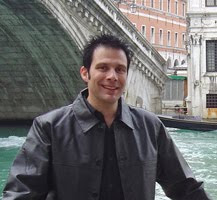Column and Interview in PUNK Magazine (Italy)
 In late July, the first issue of the Italian music zine titled PUNK Magazine to feature a column and interview I wrote finally appeared on Italian newsstands. The column is a piece about the ever-changing nature of punk rock as a music form, and how that relates to the original definitions, and compares to what is currently called “punk” by the mainstream entertainment media. In the column, I discuss the original sociopolitical content of some of the punk pioneers, and compare that to the current trend of combining politics with punk music.
In late July, the first issue of the Italian music zine titled PUNK Magazine to feature a column and interview I wrote finally appeared on Italian newsstands. The column is a piece about the ever-changing nature of punk rock as a music form, and how that relates to the original definitions, and compares to what is currently called “punk” by the mainstream entertainment media. In the column, I discuss the original sociopolitical content of some of the punk pioneers, and compare that to the current trend of combining politics with punk music.
Also discussed in the column are a few bands I have worked with over the last year, including Scarred Hope, a punk band with a strong reggae influence, and healthy dose of inspiration from bands like the Clash and Operation Ivy. Scarred Hope hail from Redcliffe, Queensland in Australia (hometown of the BeeGees), and come from working-class backgrounds that add fuel to their vitriolic lyrics about racial, class, and religious discrimination. I had the opportunity to produce their upcoming album, Blue Collar Suicide, in Foxhole Studios in Brisbane, Australia last October, and brought the tracks back home to Sonic Iguana Studios for editing, mixing, and mastering.
Another band I discussed in the column was Los Pepiniyoz, a band from Puerto Rico that traveled to Lafayette to record their new album with me at Sonic Iguana. Their music is largely inspired by the early pioneers of pop-punk, like the Ramones and the Dickies. Their lyrics are entirely in Spanish, and they sing about the dreams and hopes of their fellow islanders, as well as about growing up punk in Borinquen. Their album is now complete, and they are currently searching for a US label to release it stateside.
In the same issue of PUNK Magazine, the first part of an interview I did with Lookout Records founder Lawrence Livermore appears alongside several photos from the early days of the label. In the interview, Livermore answers questions about, and provides insight, into the explosion of the pop-punk music scene in the early nineties, and way that the increased popularity changed the scene itself. The specific points covered range from his early relationship with Operation Ivy, his involvement from the earliest days of Green Day, to his eventual decision to leave the label entirely. Part two of the same interview will appear in the subsequent issue of PUNK Magazine.


